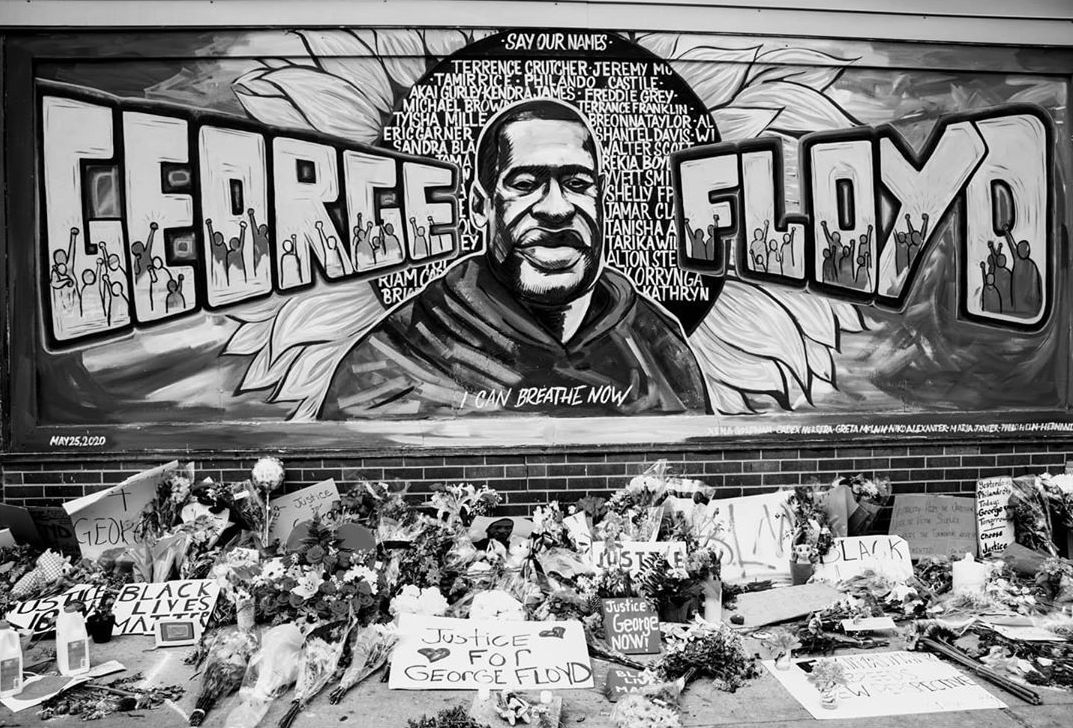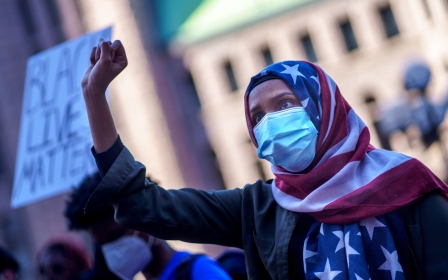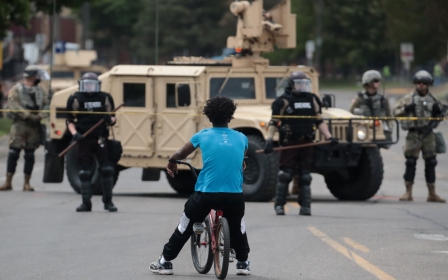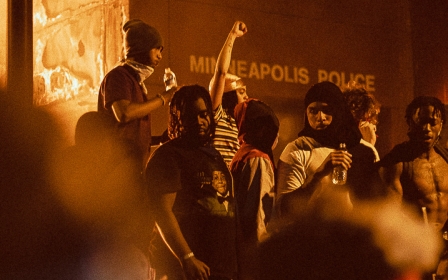Why Muhammad Ali is still right about American violence

Muhammad Ali, the heavyweight boxing champion, could float like a butterfly and sting like a bee. But the greatest boxer also cut deep with razor-sharp wit. Taunting his opponents with his rhymes and gifted one-liners, he both endeared himself to, and angered, America.
In 1967, when the Vietnam war was still popular with Americans, his decision to not fight on conscientious grounds saw him nearly laid flat out by the nation's powerful sporting, media and political establishments.
America demanded that the young Black man do as he was told.
But Ali, who had yet to reach his prime, refused to cower and instead squared up against a corrupt system that viewed his, and the lives of millions of other African-Americans, indifferently.
“Why should they ask me to put on a uniform and go ten thousand miles from home and drop bombs and bullets on brown people in Vietnam while so-called Negro people in Louisville are treated like dogs and denied simple human rights?” he said. “No, I am not going ten thousand miles from home to help murder and burn another poor nation simply to continue the domination of white slave masters of the darker people the world over. This is the day when such evils must come to an end.”
For all that has changed since 1967 in America, be it through the "end" of institutionalized segregation, the growth of a Black middle class, representation in film and television, electoral representation - including the first Black president in Barack Obama in 2008 - the actual value of Black life has fundamentally remained the same.
'Accumulated hurt'
The rage that has followed the murder of George Floyd, who died after being suffocated by the knee of a white police officer last week, is the manifestation of an accumulated hurt over decades and centuries of material, psychological and emotional contempt for Black people.
Streets that were empty through fear and disease a week back have been overrun by a selfless pursuit of justice
For those who have come out and protested in silence, there are others who have treated the empire citadels - its shops and marketplaces - long the temples of this consumerist corporate-run democracy, with disdain.
They have burnt police stations, upturned vehicles, trashed storefronts. Streets that were empty through fear and disease a week back have been overrun by a selfless pursuit of justice.
Though local politicians and some activists have raised the alarm of bussed-in miscreants, the difference between "good" and "bad" protesters has become a matter of distraction.
This is, and remains, an old story about brutality, second-class citizenship and the disposable lives of Black Americans, and the police, as the protector of the rich and a buttress for corporate looters who wield the reins on the veneer that is this democracy.
Given how Black (and brown) lives have been marginalised in the US during the Covid-19 pandemic, with the majority of deaths being Black people and immigrants of colour, and a majority of those having lost their jobs being Hispanic and Black and women, it is a tragic indictment of this disgraceful divide that is both unfathomable and untenable.
That this happened while a billionaire class reports higher returns and a predominantly white public calls for an unfettered opening of the economy is only another feature of the humiliation hunkered on Black and brown lives.
'Ask Iraqis'
Last week, the Vietnamese-American author Viet Thanh Nguyen said that once it became clear that Black and brown bodies were being disproportionately impacted by the virus, there was much less regard for the importance of the “death count for Americans”.
For those who have been at the barrel end of American empire, the actions of the police over the past week is neither surprising nor shocking
“Now the death burden is being unequally shared as it always has been in American history.”
For those who have been at the barrel end of the American empire, the actions of the police over the past week is neither surprising nor shocking. Ask Iraqis and the Afghans or the Vietnamese who have seen American invasions. Talk to the children whose civilian parents have been killed by American drones in Pakistan or Somalia.
Ask Palestinians living in the open-air prison of Gaza subsidised by American taxpayer money. The lives of others have never meant anything, ever. Who can forget former US Secretary of State Madeleine Albright’s comments on Iraq in 1998? Even if sanctions against Iraq caused the death of half a million Iraqi children, "the price is worth it,” she said.
Robin DG Kelley writes in the book Policing the Planet: Why the Policing Crisis Led to Black Lives Matter (Verso Books) that America’s “militarized culture places cops and soldiers on pedestals and frames their actions as security or as an act of self-defense”.
"Living under the occupation means enduring a permanent war in which virtually all civilians are combatants and collective punishment is the fabric of everyday life," Kelley continues.
This is a settler-colonial mentality that likes to forget it used slave labour to build the country. As the most powerful empire the world has ever seen, it's rugged individualism, liberty and capitalism is predicated on the privilege of a few profiting on the economic slavery of the erased somewhere else.
It is a warring nation that imposes its will through militarism, countless coups and through the support of dictators and authoritarians aligned with its agenda. American-style neoliberalism is an obscenity that has enabled the "forever wars" in the Middle East. Its sophistication is so all-encompassing that US corporations will happily cannibalise protests against its very existence as a product in waiting.
'Smiling with oppressors'
It is only those who have drunk the American Kool-Aid about their beloved troops, carrying their beloved values, and protecting their beloved interests who have been battling to digest the scenes outside the White House, or in NYC or elsewhere.
For the rest of us, we recognise precisely how the US war machine has operated in territories across the oceans, framing its wars as matters of “national security” or “spreading democracy”.
Muhammad Ali was certainly wise to the truth. "I know I got it made while the masses of black people are catchin’ hell, but as long as they ain’t free, I ain’t free," he once said.
More than five decades later, and its clear that no amount of pandering to power and no effort to make the truth any more palatable to white liberals is worth a seat at the table. Black people still can't breathe.
The story of this pandemic, both the coronavirus and police brutality, in America is the story of an America that dehumanises, erases and ignores the deaths of others elsewhere, and - as history shows - at home too.
The views expressed in this article belong to the author and do not necessarily reflect the editorial policy of Middle East Eye.
Middle East Eye delivers independent and unrivalled coverage and analysis of the Middle East, North Africa and beyond. To learn more about republishing this content and the associated fees, please fill out this form. More about MEE can be found here.



![George Floyd [MEE/Linda Cheriyan]](/sites/default/files/linda3.jpg)
![George Floyd [MEE/Linda Cheriyan]](/sites/default/files/linda2.jpg)


